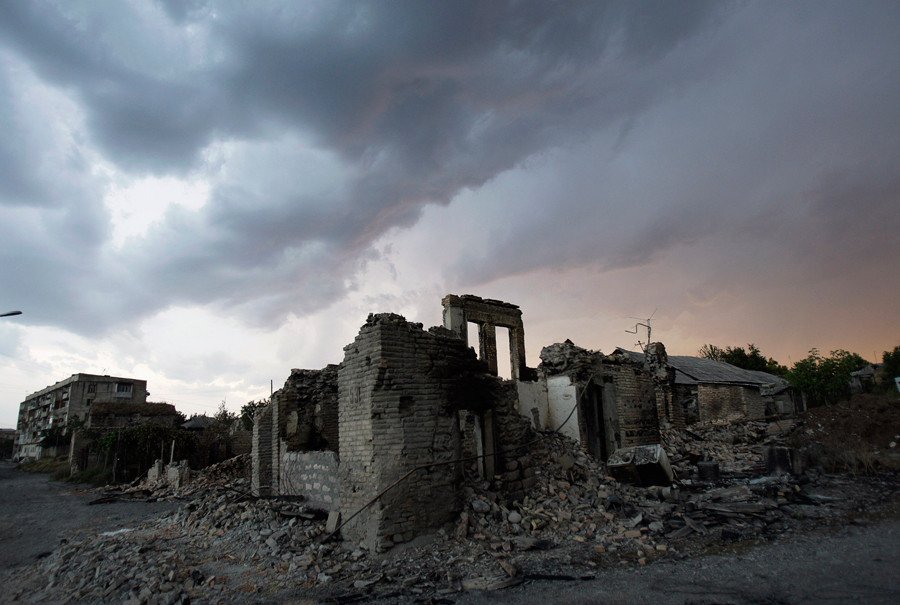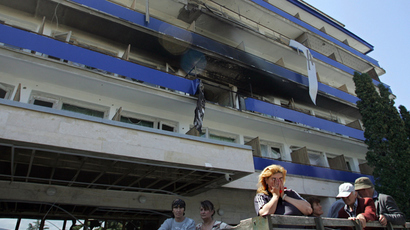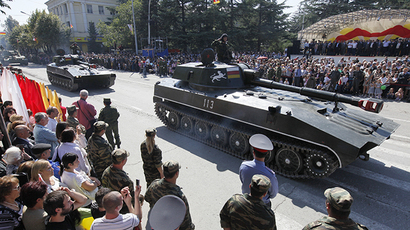‘Woman spent days near dead son’s body waiting for help’: RT reporter recalls 2008 war in S.Ossetia
Initiated by Georgia in the early hours of August 8, 2008, provoking the involvement of Russian troops and ending within five days, the war in South Ossetia saw hundreds of people lose their lives. Seven years on, RT’s Madina Kochenova, who was reporting from refugee camps at the time, is still haunted by the tragic events she witnessed.
“The nights were the most difficult, because that was the time when buses full of women and children usually came,” Kochenova, who was among RT reporters covering the conflict on the ground from its very first hours, recalled. "All of them were really frightened, most of them were looking for the members of their families, not having any information about them."
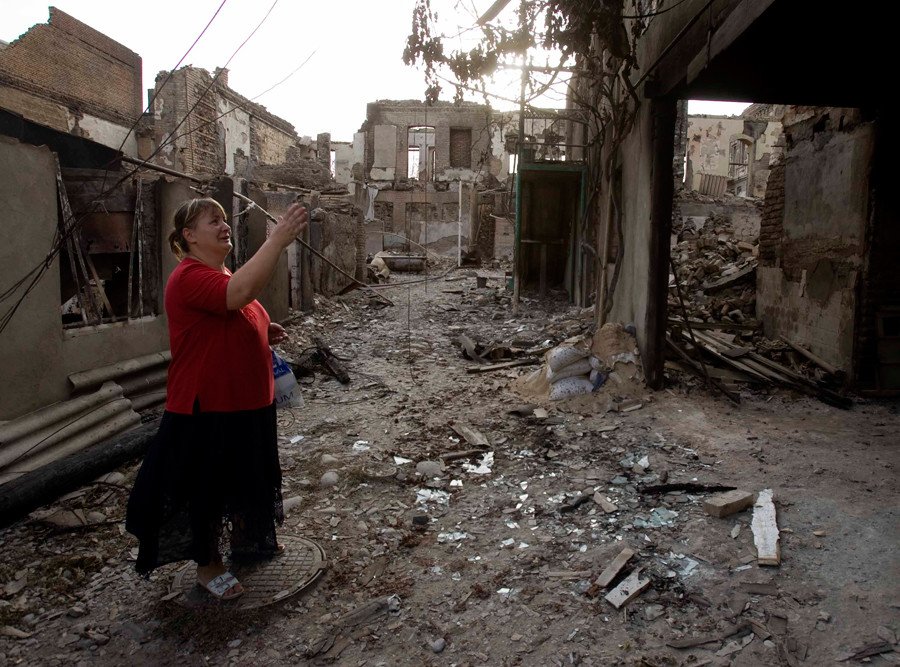
Kochenova says one story stands out as the most vivid in her memory: that of a woman who lost her son while they were both hiding in a basement. “She had to spend days holding the body of her son… while she was waiting to be rescued,” RT reporter said.
What surprised the journalist most, was that RT was the only international TV crew who reported from South Ossetia and North Ossetia. "All the other international crews were in Georgia," she said.
In 2008, Western coverage of the military conflict was mostly biased, with Russia having been slammed as aggressor at outbreak of the five day war.
"We are a small country, but we are being attacked because we wanted to be free, we are being attacked because we wanted to build genuine democracy," then-Georgian president, Mikhail Saakashvili, was saying live on CNN, after Georgian military shelled South Ossetia, with Russia then sending its troops to protect its citizens and peacekeepers in the region.
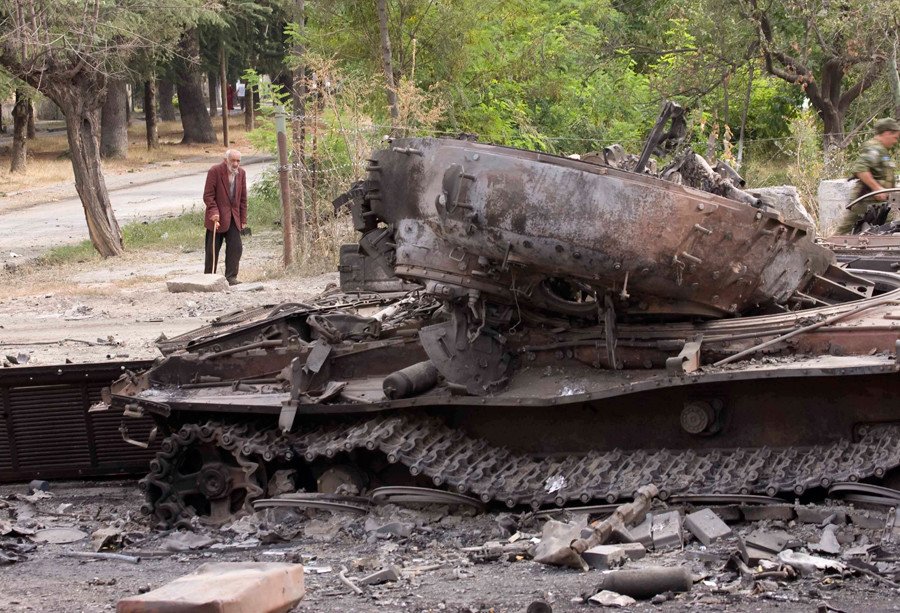
"On the day before the fighting and shelling I was the acting head of [a] mission in Tbilisi for the OSCE. We were very worried about the situation, that’s a fact," former senior OSCE official in Georgia Ryan Grist told RT. "There was clearly a Georgian military buildup south of Tskhinval on the 7th [of August, 2008]," he added.
"To my mind – and that’s purely my own opinion – it was a ridiculous move on the part of the Georgian authorities, to engage in a military adventure in South Ossetia," Grist said.
Поджигатели. 8 мифов о российско-грузинской войне 08.08.08
http://t.co/4cDFWljRm2pic.twitter.com/2H1gHysYIx
— Наталія Галас (@nata_kurt) August 8, 2015In September 2009, the European Union commission released the results of its special research into the conflict. The EU-ordered report said the war had been started "with a massive Georgian artillery attack," with Tbilisi's actions having been unjustified. There was no ongoing build-up or armed assault by Russia before the launch of the Georgian operation, the report said.
READ MORE: 5 years after 5-Day War: Russia and Georgia bury the hatchet
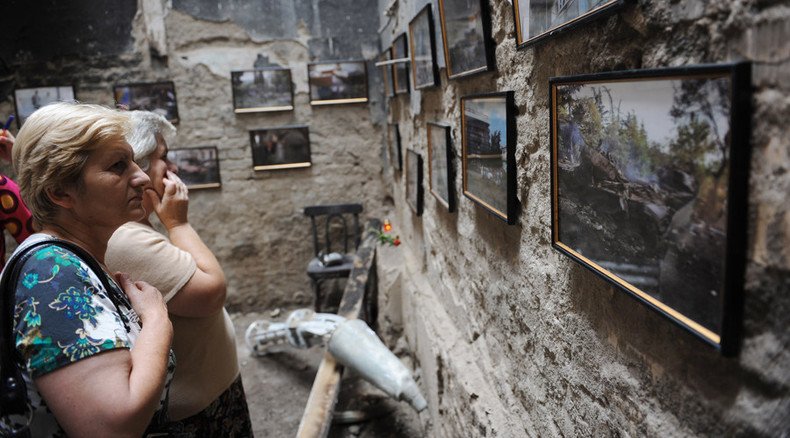
Having violated a previously-reached ceasefire agreement, the 2008 Georgian assault started with the shelling of the South Ossetian capital, Tskhinval, with artillery and multiple-launch missile systems. A Russian peacekeepers' base and residential districts of the city came under attacks. Ordered by then-Russian president, Dmitry Medvedev, the Russian military began an 'operation to force Georgia to peace' in the afternoon of the same day, shunting Georgian offenders far into Georgian territory.
Dozens of military staff on both sides were killed, with hundreds more injured in the conflict. Civilian casualties were much higher, with between 1,500 and 2,000 people killed, according to South Ossetian officials.
